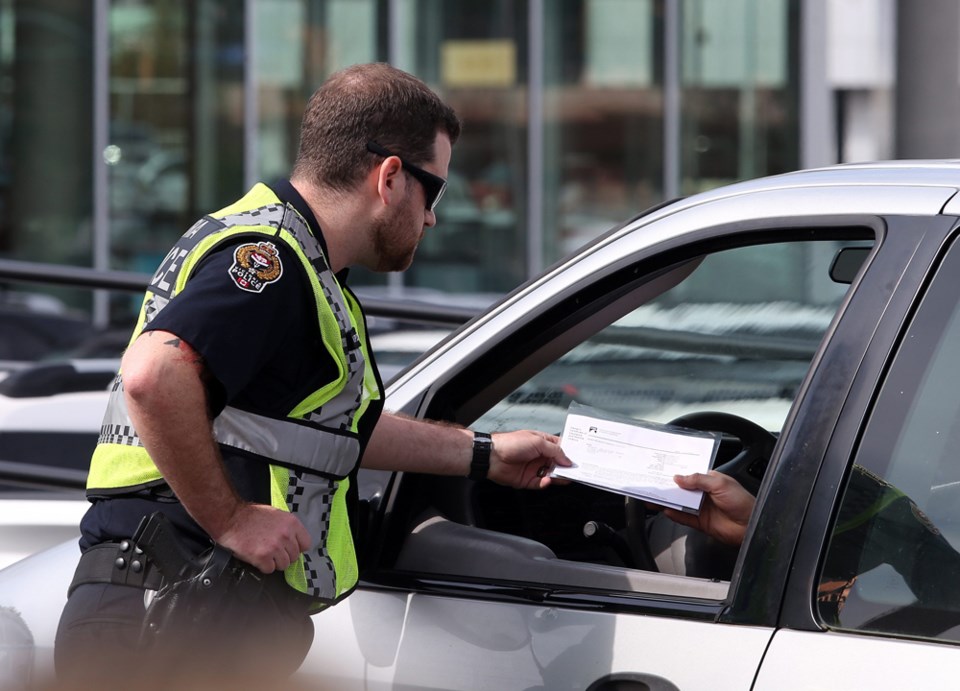B.C. drivers caught talking on cellphones or texting behind the wheel will start paying a lot more for repeat offences, Attorney General David Eby announced Monday.
Drivers with two distracted-driving tickets within a span of three years will get hit with $740 in new driver risk premium charges in addition to other fines and penalty points.
The change means the total cost of two tickets will increase to nearly $2,000 — up from $1,256 currently, the government said.
The new fees take effect March 1, 2018.
Eby said distracted driving kills 78 people a year on average in B.C. and is a factor in more than 25 per cent of all crash fatalities.
“It’s pretty clear to me that we need to make a cultural change in British Columbia where people understand that distracted driving is similar to drinking and driving or excessive speeding in terms of the death and misery on the roads it can cause,” he told reporters at the B.C. legislature.
At present, a driver who gets two tickets in one year for distracted driving pays $368 for each ticket plus $520 in penalty points for a total of $1,256. Next year, under the new program, the same driver will pay a further $740 in driver risk premium charges for a total of $1,996.
ICBC already applies driver risk premium charges in other instances such as when people rack up one or more excessive speeding convictions or two or more roadside suspensions.
The charges apply over and above regular vehicle insurance, and people get billed around the time of their birthday regardless of whether they own or insure a vehicle, the government said.
Eby said about 12,000 B.C. drivers have racked up multiple distracted driving offences in a three-year period.
“Those numbers are totally unacceptable,” he said. “People might understand that you make a mistake, you get a distracted driving ticket. But to have two or more distracted driving tickets seems totally inexcusable to me.
“People know that it’s against the law, they know they shouldn’t be doing it and they’re still doing it and they should have to pay more for insurance because they’re driving up costs and they’re also causing deaths on the road.”
The government expects ICBC to pull in $3 million to $5 million a year as a result of the new penalties. The Crown corporation lost about $500 million last year and Eby has promised to turn its fortunes around, in part, by targeting poor driving behaviour.
“We don’t see what we’d like to see which is that good drivers pay less and bad drivers pay more,” he said.
Liberal MLA Mike Morris, a former solicitor general and RCMP officer, called the new penalties a step in the right direction.
“We’re not seeing a decrease in the number of distracted drivers out there,” he said. “They haven’t got the message yet, so anything we can do to raise awareness I think is for the better.”
Chris Foord, vice-chair of the Capital Regional District’s traffic safety commission, agreed with Morris, but said it may take more than higher penalties to get people off their phones.
“It is such a powerful addiction and it’s so hard for people to break that habit,” he said. “I think ICBC could take a major step here by saying, ‘If you install a disabling device on your phone or something that sends it to voicemail while you’re driving, we’ll give you a significant discount on your insurance.’
“Anything that will get the person to buy into a positive solution is where I think we have to go.”



